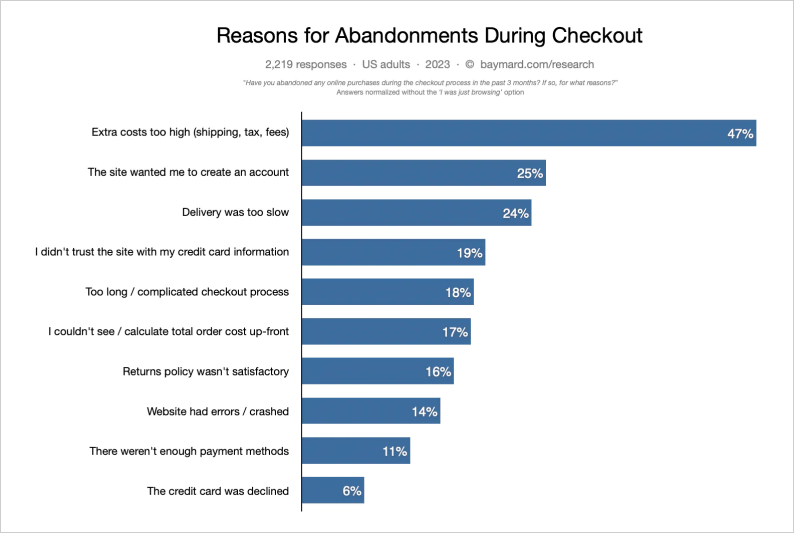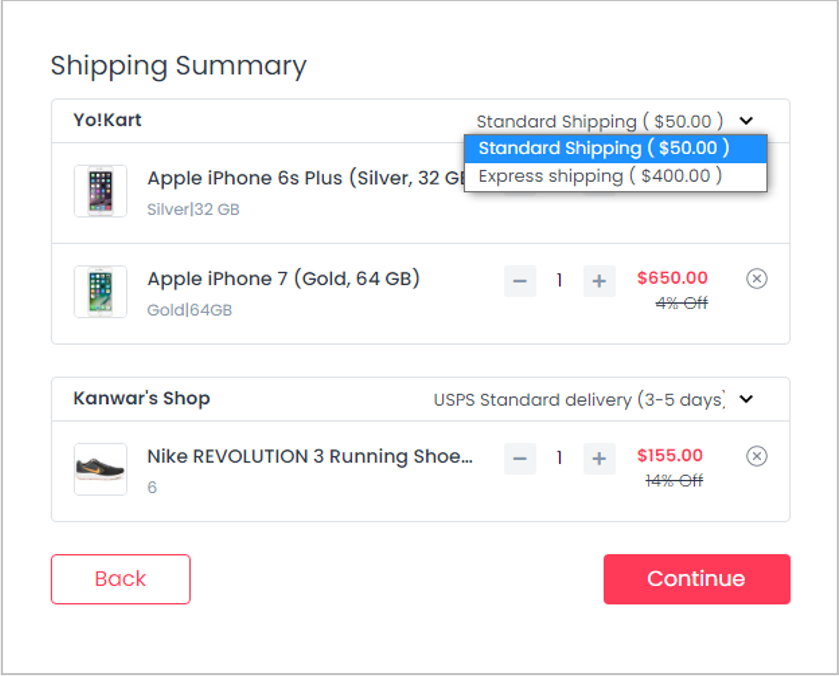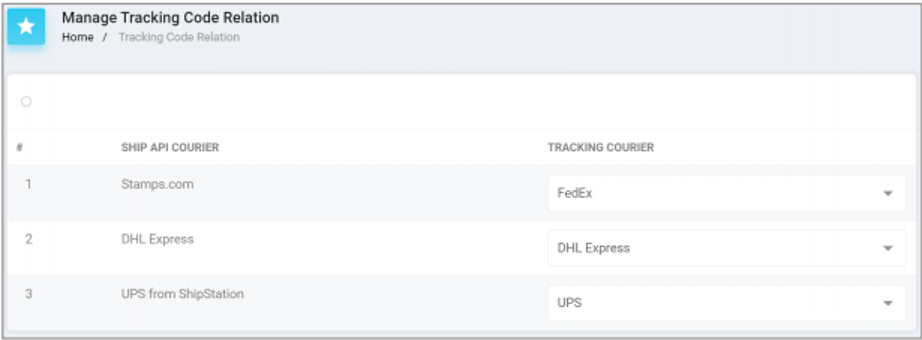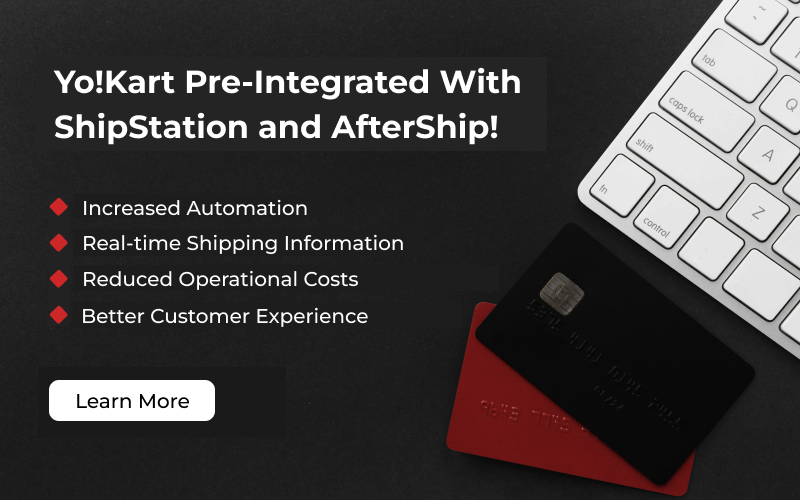How to Manage Shipping in eCommerce Marketplaces with ShipStation and AfterShip
Updated On: 29th September 2023
Shipping is a vital touchpoint for a smooth customer experience in eCommerce. From order placement to shipment pickup and delivery – synchronized and effective shipping management in eCommerce marketplaces delivers the highest sustainable return on operations (to both sellers and admin). To ensure streamlined shipping management, it is essential to define clear goals you wish to accomplish with your eCommerce shipping strategy.
For instance, improved conversion rate, enhanced operational efficiency, and an increase in average order value (AOV) are some of the most common shipping goals that your business can focus on to grow online. Whether it’s same-day or two-day shipping, one carrier or multiple carriers involved, real-time visibility into the packages across multiple touchpoints should be available without having to jump through a dozen multiple hoops.
Table Of Contents
Essential Elements of eCommerce Marketplace Shipping
Effective shipping in eCommerce marketplaces is a USP (Unique Selling Proposition) that differentiates businesses from their competitors and increases profit margins. Furthermore, customer satisfaction lies more in quick shipping and real-time delivery progress updates. However, every eCommerce business needs to consider some basic shipping elements to lay a solid foundation for efficient business shipping. Below are some key parameters that can help streamline the eCommerce shipping process. Let’s get started.
- Order Management: It enables the eCommerce marketplace to handle every key aspect including orders placed and received, delivery tracking, and service availability.
- Order Fulfillment: The subsets of order fulfillment are packaging, labeling, and shipment of products once the order is received. Further, you can decide if the vendor will fulfill the order or it is the responsibility of a fulfillment service.
- Shipping Providers: Deciding on an ideal shipping carrier will impact the order cost, delivery, reach, and service efficacy.
- Tracking: Ease of order tracking shipped by vendors can ensure a seamless experience for the users. Sellers must update the necessary information like order shipped or not shipped, delivered or not delivered, in transit, etc. This will further help track low performers and help explore ways to improve the marketplace’s delivery services.
- Returns: Customers appreciate the seamless buying process as they value purchasing goods on a marketplace. Here, smooth return policies promote customer loyalty.
- Customer Service: Providing customer assistance at every step of the customer journey is essential. Timely resolution of complaints and doubts can help attract more customers.
Employing all these key elements manually to streamline the eCommerce marketplace shipping journey can be hectic, especially when the demand for supply increases. Here, multivendor eCommerce software pre-integrated with shipping APIs like ShipStation and AfterShip can help businesses build eCommerce marketplaces that automate the entire shipping process.
Overview of ShipStation and AfterShip
ShipStation
ShipStation is a global eCommerce marketplace shipping software and a leading choice for business owners to connect with their favorite carriers, generate shipping labels, and fetch real-time shipping rates quickly. It offers the lowest shipping rates on USPS, UPS, FedEx, and DHL, no matter the volume or where business owners sell. Once configured for eCommerce operations, ShipStation fetches real-time shipping rates for all carriers and pre-selects the cheapest Shipping/delivery option (although buyers can change as per their preferences) on the checkout page.
AfterShip
This leading shipment tracking solution empowers eCommerce businesses to grow and provide the best shopping experience to their customers. AfterShip includes a set of automated tools that assist businesses with sales, marketing, order management, and shipping tracking. Integration of AfterShip with eCommerce platforms allows business owners to send personalized targeted information to the customers based on the status AfterShip tracks.
The enterprise-grade analytics in your post-purchase experience help business owners improve the delivery experience and make insightful decisions.
Automate Your eCommerce Marketplace Shipping With Pre-Integrated Solutions
Shipping Management Challenges Addressed with ShipStation & Aftership
Shipping management has been a primary challenge for eCommerce retailers, especially small and medium-sized businesses (SMBs). In the age of Amazon with its two-hour or same-day delivery options, retailers are struggling to compete as they fail to streamline shipping processes either due to poor inventory visibility or inadequate returns management. This has partly been caused due to extensive efforts required for manual shipping module operations.
For instance, individually updating the order status for each shipment or configuring shipping carriers in the eCommerce marketplace can be hectic for a business owner. With pre-integrated eCommerce shipping management software in Yo!Kart, these challenges are mitigated to a great extent.
1. High Shipping Cost: High shipping costs can quickly devour your business as customers do not like to pay for shipping. APIs like ShipStation and AfterShip ensure your customers find the lowest shipping rates across all products in the eCommerce marketplace. The module fetches discounted rates for nearly every major shipping carrier configured.

Source: Baymard
2. International shipping: From configuring unfamiliar shipping carriers to managing international duties and taxes, there are several complications that prevent eCommerce businesses from expanding globally. ShipStation and AfterShip simplify international shipping processes for eCommerce businesses. Once configured, it provides instant refunds, deep discounts, and express delivery to major cities worldwide.
3. Poor inventory monitoring: Ineffective product allocation strategy may cause delayed shipments to buyers leading to poor customer satisfaction. For instance, without a reliable mechanism to track and manage stock levels, customers can place orders for products that are out of stock. To prevent such a situation, shipping APIs have automated shipping operations enabling retailers/admins to monitor and sync inventory levels more effectively.
When seeking enhanced and personalized delivery for buyers, business owners require accurate information on users, inventory, and more in real-time. Integrating shipping software to automate shipping management in eCommerce marketplaces streamlines the entire order fulfillment process helping eCommerce retailers improve operational efficiency.
How Pre-integrated APIs in Yo!Kart Help Manage eCommerce Marketplace Shipping?
The manual shipping management in Yo!Kart was a thing of the past. The latest version of Yo!Kart is equipped with enhanced features and functionalities and there are pre-integrated APIs like Shipstation, AfterShip, and more. These APIs help admins automate and streamline the store’s shipping processes like order management, creating shipping labels, retrieving real-time shipping rates, and so on. Furthermore, it provides customers with complete insights on all orders at every stage of the shipping process.

Enabled ShipStation API in Yo!Kart
Once enabled with the dashboard, these pre-integrated APIs in Yo!Kart performs the following operations:
1. Fetches the list of all available shipping carriers configured in the marketplace
2. Retrieves a list of locations from where the orders will be shipped
3. Fetches live shipping rates from the carriers configured along with order dimensions and weight
4. Create shipping labels and generate order tracking numbers
5. Updates the order status
Also, you can map shipping providers (configured using ShipStation API) with tracking courier services (configured using AfterShip API enabled). Go to “Tracking Code Relation “within the admin dashboard to map these services. This allows customers to track orders with ease.

Concluding Remarks
Shipping is one of the major contributors to customer satisfaction and the success of any eCommerce business. However, as the business continues to scale, shipping can be one of the intricate processes for businesses to handle. Here, integrating shipping solutions like ShipStation and Aftership into eCommerce marketplaces transforms the way of handling logistics. These APIs enable sellers to connect to a vast network of shipping carriers and logistic providers. The sellers get access to real-time shipping rates, automate label generation, and can manage various other aspects of the shipping process seamlessly. At the same time, it enables marketplaces to attract and retain a broader array of customers onto the marketplace.
Frequently Asked Questions:
1. What are the different types of shipping methods?
There are 7 shipping methods that one can implement at an e-commerce store checkout. These options include table rate, flat rate, shipping per product, shipping to multiple addresses, conditional shipping, local pickup, and packing slips.
2. How does eCommerce manage delivery?
Shipping is a key part of every e-commerce business. To manage shipments delivery, an eCommerce business implements an effective shipping strategy that offers low shipping rates on products, simplifies international shipping processes, and monitors inventory levels so the product never goes out of stock. This can be easily done by automating the shipment process for your eCommerce marketplace.
3. What is the best shipping method for an online store?
Ideal shipping methods depend upon the shipping strategy and there is no one-size-fits-all in eCommerce shipping. In general, there are six shipping methods namely, two-day delivery, same-day delivery, overnight shipping, international delivery, expedited shipping, and eco-friendly shipping.
4. How do e-commerce sites calculate shipping?
From shipment’s dimensional volume & total weight to import/export fees when shipping internationally, there are a variety of factors when calculating shipping cost. To ensure accurate shipping cost estimates, most e-commerce sites have pre-integrated eCommerce shipping management software like ShipStation to automate shipping calculating for every online order placed successfully.
5. How do you integrate with ShipStation?
ShipStation API comes pre-integrated in Yo!Kart-powered marketplaces. To enable Shipstation, go to System Settings -> Plugins -> Shipping Services in the admin dashboard. Here, you can configure ShipStation for your marketplace by entering the API key and API Secret key.
6. How do you integrate with AfterShip?
AfterShip API comes pre-integrated in Yo!Kart-powered marketplaces. To enable AfterShip, go to System Settings -> Plugins -> Shipment Tracking in the admin dashboard. Here, you can configure AfterShip for your marketplace by entering the API key.




